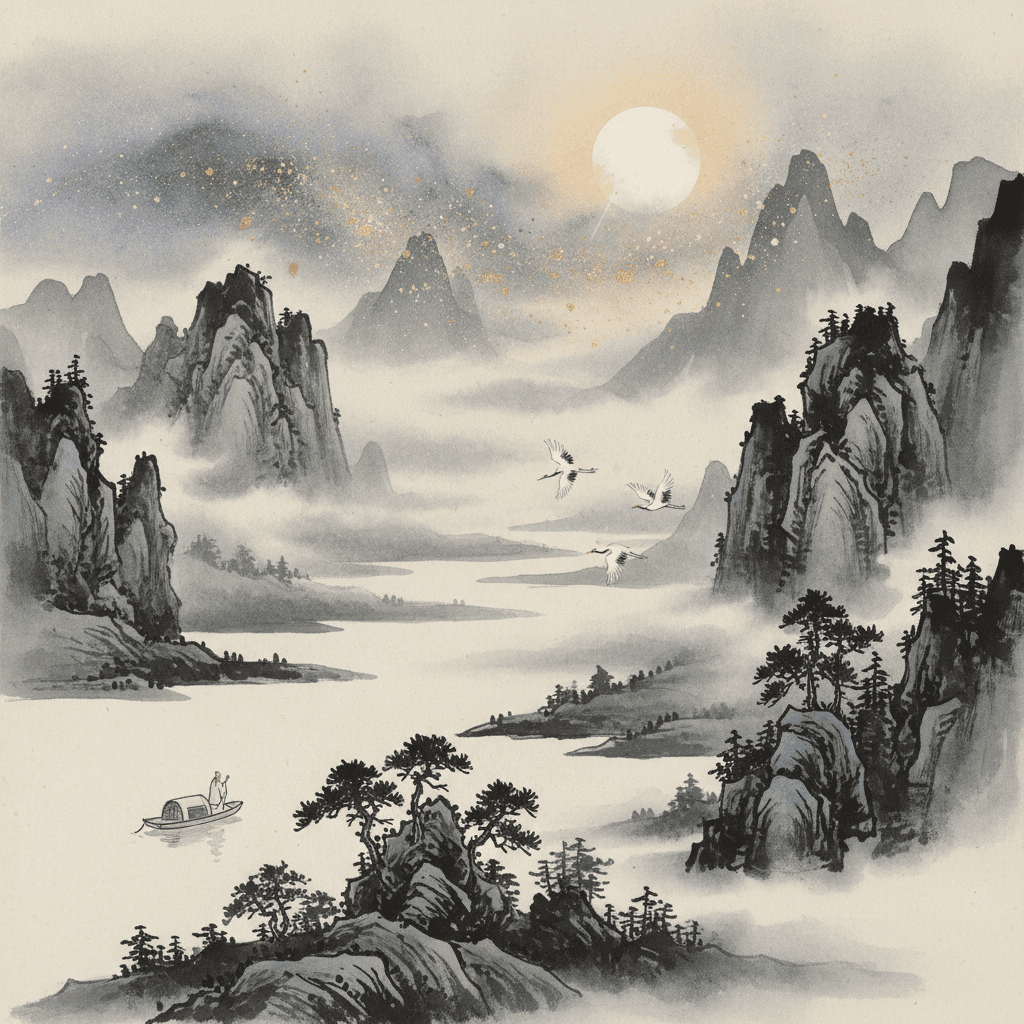Enduring Achievement Through the Paradox of Non-Doing

When all under Heaven know beauty as beauty, ugliness arises. When all know good as good, evil emerges. Thus, being and non-being give birth to each other; Difficult and easy complete each other; Long and short contrast each other; High and low depend on each other; Sound and tone harmonize with each other; Front and back follow one another. Therefore, the Sage acts without striving, Teaches without words. All things arise, yet he does not claim them; He creates, yet does not possess. He works, yet does not rely on his deeds. He achieves, yet takes no credit. Because he does not claim, His achievement endures. - Laozi
Names and the Birth of Opposites
Laozi opens by showing how recognition creates contrast: once we call something beautiful, its opposite—ugliness—immediately appears. The same applies to good and evil; labeling fixes a boundary that summons its counterpart. In Daodejing, chapter 2, this insight is less a moral verdict than a linguistic diagnosis: our words carve reality into pairs that depend on each other to make sense. By foregrounding this mechanism, Laozi invites humility about judgment. As soon as we elevate a standard, we generate its shadow. This is why Heraclitus’s aphorism—“the road up and down are one and the same” (DK B60)—feels at home here: perspective and naming co-create difference.
Being and Emptiness as Co-Creators
From this linguistic insight, Laozi turns to ontology: being and non-being generate each other. The world is not a contest between presence and absence but a partnership. A bowl holds food because its center is empty; a room is livable because its walls enclose space. Daodejing, chapter 11, famously observes that usefulness often resides in what is not there. Consequently, negation is not nullity but a shaping force. Non-being outlines the possibilities of being, as silence frames music and pauses give speech its cadence. Rather than clinging to substance alone, Laozi asks us to see how absence completes form.
The Dance of Contrasts
Expanding this interplay, Laozi lists pairs—difficult/easy, long/short, high/low, sound/tone, front/back—to show a rhythmic reciprocity. Each term calibrates the other; without contrast, measures collapse. The yin–yang emblem captures this reciprocity: each swirls into the other, each contains a seed of its opposite. Modern lenses echo this sensibility. Niels Bohr’s principle of complementarity (1927) argues that seemingly conflicting descriptions—wave and particle—are both necessary to grasp quantum phenomena. Likewise, systems thinking treats stability not as stasis but as balanced counter-movements. Laozi’s point is practical: wisdom coordinates tensions rather than abolishing them.
Effortless Action: The Practice of Wu Wei
Consequently, the Sage “acts without striving.” Wu wei is not laziness; it is action aligned with conditions so well that force becomes unnecessary. Think of a skilled sailor trimming sails to the wind instead of muscling against it. When effort meets the grain of things, small inputs yield large effects. Psychology offers a parallel in Mihaly Csikszentmihalyi’s Flow (1990): peak performance feels smooth, selfless, and unforced. Yet Laozi goes further—flow is not merely a mental state but an ethical posture that refuses to impose ego on the world. By working with natural currents, the Sage conserves energy and reduces collateral harm.
Teaching Without Words, Mastery Without Boasting
From action to instruction, Laozi’s Sage “teaches without words.” Tacit guidance—example, timing, and atmosphere—often outperforms explicit rule-making. Zhuangzi illustrates this through the story of Cook Ding, who carves an ox by finding the spaces in the joints; his blade “never needs sharpening” because it follows the Dao (Zhuangzi, ch. 3). The lesson is felt before it is explained. Such teaching respects the learner’s unfolding. Rather than saturating minds with doctrine, it cultivates perception, letting insight arise naturally. In this way, pedagogy mirrors wu wei: minimal push, maximal resonance.
Ownership, Credit, and the Power of Restraint
Aligned with this posture, Laozi praises creating without possessing and accomplishing without claiming. Ownership can invite rigidity and fear of loss; credit-seeking distorts motives and provokes rivalry. By contrast, stewardship focuses on the work’s health beyond the self. Leadership studies describe a similar pattern. Jim Collins’s “Level 5 leadership” (Good to Great, 2001) finds enduring enterprises built by quietly ambitious leaders who deflect praise and absorb blame. Open, collaborative projects—such as large free-software communities—often thrive when contributors treat outcomes as shared rather than personal trophies. Restraint, paradoxically, amplifies collective capacity.
Why What Is Not Claimed Endures
Thus the final paradox: because the Sage does not claim, his achievement endures. Non-attachment safeguards works from the erosion of ego, keeping them adaptable and widely owned. The Bhagavad Gita offers a resonant counsel—“You have a right to action, not to its fruits” (2.47)—suggesting that durability grows from freedom from grasping. When results are not seized, they can be maintained by many hands; when credit is not hoarded, goodwill replenishes effort. Laozi closes the loop: by loosening control, one secures continuity. Letting go becomes the surest way to let things last.